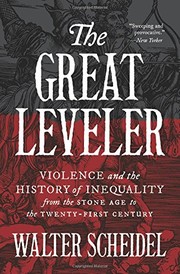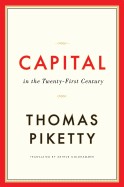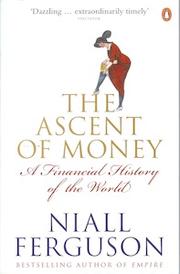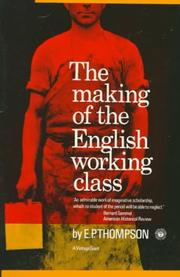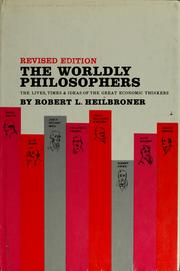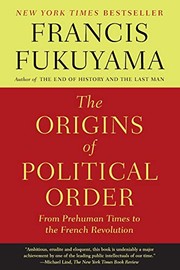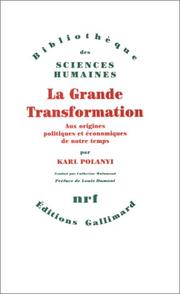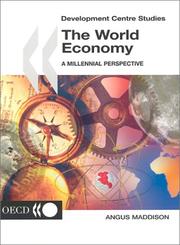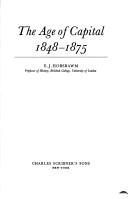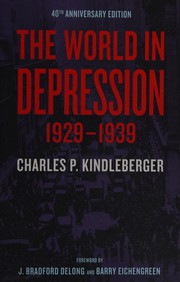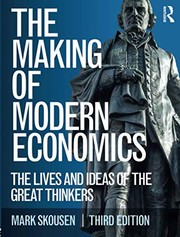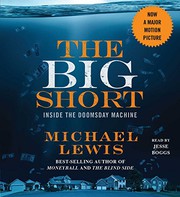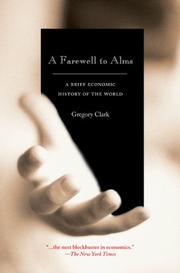Are you fascinated by the intricate relationship between economics and history? Look no further! Dive into the past with these 20 captivating books on economic history. From the rise and fall of empires to the impact of industrialization, these books offer a deep understanding of how economic forces have shaped the world we live in today. Whether you’re a history buff or an economics enthusiast, these economic history books are sure to enlighten and entertain.
Contents
- 1 20 Best Books About Economic History
- 2 The Great Leveler: Violence and the History of Inequality from the Stone Age to the Twenty-First Century
- 3 The Wealth of Nations
- 4 Capital in the Twenty-First Century
- 5 The Ascent of Money: A Financial History of the World
- 6 The Making of the English Working Class
- 7 The Worldly Philosophers: The Lives, Times, and Ideas of the Great Economic Thinkers
- 8 The Origins of Political Order: From Prehuman Times to the French Revolution
- 9 The Great Transformation: The Political and Economic Origins of Our Time
- 10 The World Economy: A Millennial Perspective
- 11 The Silk Roads: A New History of the World
- 12 The Rise and Fall of Nations: Forces of Change in the Post-Crisis World
- 13 The Euro: How a Common Currency Threatens the Future of Europe
- 14 The Great Escape: Health, Wealth, and the Origins of Inequality
- 15 The Power of Gold: The History of an Obsession
- 16 The Age of Capital: 1848-1875
- 17 The World in Depression, 1929-1939
- 18 The Making of Modern Economics: The Lives and Ideas of the Great Thinkers
- 19 The Big Short: Inside the Doomsday Machine
- 20 Guns, Germs, and Steel
- 21 A Farewell to Alms
- 22 Conclusion
- 23
- 24 20 Pregnant Teens Best Books to Read – The 2024 Edition
- 25 The 20 Rockets Books: Best 2024 Update and Review
- 26 Books about Social: 2024's Best Titles
20 Best Books About Economic History
The Great Leveler: Violence and the History of Inequality from the Stone Age to the Twenty-First Century
by Walter Scheidel
The Great Leveler: Violence and the History of Inequality from the Stone Age to the Twenty-First Century by Walter Scheidel is a groundbreaking book about economic history that explores the relationship between violence and inequality. Scheidel argues that throughout history, only four major events have led to significant reductions in inequality: mass mobilization warfare, transformative revolutions, state collapse, and lethal pandemics. Drawing on a wide range of historical examples, from ancient civilizations to modern societies, Scheidel demonstrates how these violent disruptions have consistently leveled the economic playing field. This thought-provoking economic history book challenges conventional wisdom about the causes and consequences of inequality, offering a fresh perspective on the forces that shape our economic and social structures.
The Wealth of Nations
by Adam Smith
The Wealth of Nations by Adam Smith is a groundbreaking book on economic history that explores the principles of capitalism and free markets. Published in 1776, this influential work delves into the importance of division of labor, the role of self-interest in driving economic prosperity, and the impact of government intervention on commerce. Smith’s ideas on the invisible hand, which suggests that individual self-interest can lead to collective societal benefits, have had a lasting impact on economic theory. This seminal economic history book has shaped modern economic thought and remains essential reading for anyone looking to understand the foundations of capitalism and the development of market economies.
Capital in the Twenty-First Century
by Thomas Piketty
Capital in the Twenty-First Century by Thomas Piketty is a groundbreaking book on economic history that delves into the dynamics of wealth and inequality. Piketty provides a comprehensive analysis of economic trends over the past few centuries, exploring the concentration of wealth and its implications for society. Through an insightful examination of historical data and economic theory, he offers a compelling argument for the role of capital in shaping our economic landscape. With meticulous research and engaging prose, this economic history book presents a thought-provoking perspective on the distribution of wealth and the forces driving inequality. It is a must-read for anyone interested in understanding the complexities of modern economies and the historical patterns that have shaped our financial world.
The Ascent of Money: A Financial History of the World
by Niall Ferguson
The Ascent of Money: A Financial History of the World, written by Niall Ferguson, is a captivating book on economic history that takes readers on a fascinating journey through the evolution of money, credit, and the global financial system. Ferguson explores the impact of finance on the rise and fall of civilizations, from ancient Babylon to modern Wall Street, and examines the pivotal role of banking, insurance, and the stock market in shaping the world we live in today. With engaging storytelling and insightful analysis, this book about economic history offers a comprehensive understanding of the forces that have shaped the economic landscape throughout history. Whether you’re a financial enthusiast or simply curious about the economic history book, The Ascent of Money provides a compelling and thought-provoking exploration of the power and influence of money in our world.
The Making of the English Working Class
by E.P. Thompson
The Making of the English Working Class by E.P. Thompson is a renowned book on economic history that delves into the social and economic conditions of the working class in 18th and 19th century England. Thompson’s groundbreaking work challenges traditional historical narratives by focusing on the experiences of the working class and their role in shaping the course of history. Through extensive research and detailed analysis, the book offers a compelling exploration of the lives, struggles, and contributions of the working class, shedding light on their resilience and agency in the face of industrialization and social upheaval. Thompson’s vivid storytelling and meticulous attention to detail make this economic history book a captivating read for anyone interested in understanding the profound impact of the working class on English society and beyond.
The Worldly Philosophers: The Lives, Times, and Ideas of the Great Economic Thinkers
by Robert L. Heilbroner
The Worldly Philosophers: The Lives, Times, and Ideas of the Great Economic Thinkers by Robert L. Heilbroner is a captivating book on economic history that takes readers on a fascinating journey through the lives and ideas of the most influential economists of all time. Heilbroner provides an engaging and accessible exploration of the economic history book, shedding light on the individuals who shaped our understanding of the economy. Through vivid storytelling and insightful analysis, he brings to life the economic theories and philosophies of great thinkers such as Adam Smith, Karl Marx, and John Maynard Keynes. Whether you’re a student of economics or simply curious about the book about economic history, The Worldly Philosophers offers a compelling narrative that will deepen your understanding of the forces that have shaped the world we live in.
The Origins of Political Order: From Prehuman Times to the French Revolution
by Francis Fukuyama
The Origins of Political Order: From Prehuman Times to the French Revolution by Francis Fukuyama is a comprehensive book on economic history that explores the development of political institutions and societies from the earliest human communities to the French Revolution. Fukuyama delves into the evolution of political order, examining the role of kinship, religion, and bureaucracy in shaping human societies. He also discusses the emergence of the state, the rule of law, and accountable government, providing a compelling analysis of the forces that have shaped human history. With its rich historical detail and thought-provoking insights, this economic history book is essential reading for anyone interested in understanding the origins of political order and the development of societies throughout history.
The Great Transformation: The Political and Economic Origins of Our Time
by Karl Polanyi
The Great Transformation by Karl Polanyi is a seminal book on economic history that explores the political and economic origins of our time. This thought-provoking work delves into the impact of capitalism on society, addressing the social and political consequences of economic changes. Polanyi’s analysis offers a comprehensive understanding of the historical forces that have shaped our modern economic and political systems. The book provides valuable insights into the relationship between markets, state intervention, and social welfare, making it a must-read for anyone interested in understanding the complexities of economic history. Through meticulous research and compelling arguments, Polanyi presents a compelling narrative that sheds light on the origins and evolution of our current economic landscape.
The World Economy: A Millennial Perspective
by Angus Maddison
The World Economy: A Millennial Perspective by Angus Maddison is a groundbreaking book on economic history that provides a comprehensive overview of global economic development over the past 1,000 years. Maddison meticulously examines the evolution of the world economy, analyzing the growth and decline of different regions and civilizations, and the factors that have driven these changes. The book offers a compelling narrative of the key events, technological advancements, and economic trends that have shaped the modern global economy. With extensive data and insightful analysis, this book about economic history sheds light on the interconnectedness of nations and the enduring impact of historical economic forces on contemporary economic challenges. Whether you are a history buff or an economics enthusiast, this economic history book is a must-read for anyone seeking a deeper understanding of the world’s economic past and its implications for the future.
The Silk Roads: A New History of the World
by Peter Frankopan
The Silk Roads: A New History of the World by Peter Frankopan is a captivating book on economic history that takes readers on a journey along the ancient trade routes that connected the East and the West. Frankopan challenges the traditional Euro-centric view of history by highlighting the crucial role of the Silk Roads in shaping the world’s economic, cultural, and political development. The book explores the exchange of goods, ideas, and religions between different civilizations, and how these interactions have had a lasting impact on the modern world. Frankopan’s engaging narrative and meticulous research make this book about economic history a must-read for anyone interested in understanding the interconnectedness of global economies throughout history. Whether you’re a history enthusiast or simply curious about the origins of our modern economic landscape, The Silk Roads offers a rich and enlightening perspective on economic history.
The Rise and Fall of Nations: Forces of Change in the Post-Crisis World
by Ruchir Sharma
The Rise and Fall of Nations: Forces of Change in the Post-Crisis World by Ruchir Sharma is a compelling book about economic history that explores the rise and decline of nations in the ever-changing global economy. Sharma, a renowned global investor and writer, provides an insightful analysis of the factors that shape the economic destiny of nations, including politics, demographics, and technology. Through a combination of historical examples and current data, Sharma offers a comprehensive understanding of the forces that drive economic growth and stagnation. This economic history book is essential reading for anyone seeking to understand the dynamics of the global economy and the factors that determine a nation’s success or failure in the post-crisis world.
The Euro: How a Common Currency Threatens the Future of Europe
by Joseph E. Stiglitz
The Euro: How a Common Currency Threatens the Future of Europe by Joseph E. Stiglitz is a thought-provoking book on economic history that delves into the complexities of the Eurozone. Stiglitz, a Nobel Prize-winning economist, challenges the conventional wisdom that the Euro is a symbol of unity and prosperity for Europe. Instead, he argues that the single currency has exacerbated economic disparities and political tensions among member countries. Drawing on his expertise, Stiglitz provides a comprehensive analysis of the Euro’s impact on the European economy, highlighting its role in the financial crisis and the subsequent austerity measures. Through a compelling narrative, he raises crucial questions about the future of the Euro and the broader implications for the European project. This book about economic history offers valuable insights for anyone interested in understanding the complexities of the Euro and its potential consequences for Europe’s future.
The Great Escape: Health, Wealth, and the Origins of Inequality
by Angus Deaton
The Great Escape: Health, Wealth, and the Origins of Inequality by Angus Deaton is a compelling book on economic history that explores the roots of global inequality. Deaton delves into the intertwined issues of health and wealth, examining how they have shaped societies and individuals throughout history. Through a mix of historical analysis and contemporary data, he uncovers the complex factors that have contributed to the vast disparities in prosperity and well-being around the world. With a keen focus on the impact of inequality on human lives, Deaton offers a thought-provoking perspective on the challenges and opportunities facing modern societies. This economic history book provides valuable insights for anyone interested in understanding the forces that have shaped our world and continue to influence our future.
The Power of Gold: The History of an Obsession
by Peter L. Bernstein
The Power of Gold: The History of an Obsession by Peter L. Bernstein is a fascinating book on economic history that delves into the enduring allure of gold throughout human civilization. Bernstein explores the role of gold as a symbol of wealth, power, and prestige, tracing its influence on the rise and fall of empires, the development of financial systems, and the shaping of global economies. Through engaging storytelling and meticulous research, the author uncovers the intricate and often tumultuous relationship between humanity and this precious metal. Readers will gain a deeper understanding of the economic history book as they follow the captivating journey of gold from ancient times to the modern era, and its profound impact on societies and individuals. The Power of Gold is a must-read for anyone intrigued by the captivating intersection of wealth, history, and human behavior.
The Age of Capital: 1848-1875
by Eric Hobsbawm
The Age of Capital: 1848-1875 by Eric Hobsbawm is a captivating book on economic history that delves into the transformative period of the mid-19th century. Hobsbawm explores the rise of industrial capitalism, the impact of technological advancements, and the global changes that shaped the world economy during this era. Drawing on a wealth of historical sources, he provides a comprehensive analysis of the social, political, and economic forces at play, offering readers a deep understanding of the economic history of this pivotal time. Hobsbawm’s engaging narrative and insightful interpretations make this book about economic history a compelling read for anyone interested in understanding the roots of modern capitalism and its far-reaching effects on the world.
The World in Depression, 1929-1939
by Charles P. Kindleberger
The World in Depression, 1929-1939 by Charles P. Kindleberger is a comprehensive book on economic history that delves into the causes and effects of the Great Depression. Kindleberger provides a detailed analysis of the global economic collapse, exploring the interconnectedness of various countries’ economies and the impact of financial policies on a worldwide scale. Through meticulous research and insightful commentary, the author offers a compelling narrative of the tumultuous decade, examining the failures of international cooperation and the rise of protectionist measures. This book about economic history is a vital resource for anyone seeking a deeper understanding of the complexities of economic crises and their lasting repercussions. Kindleberger’s expertise shines through in this authoritative and engaging account of a defining period in economic history.
The Making of Modern Economics: The Lives and Ideas of the Great Thinkers
by Mark Skousen
The Making of Modern Economics: The Lives and Ideas of the Great Thinkers by Mark Skousen is a comprehensive book on economic history that provides an engaging exploration of the evolution of economic thought. Skousen takes readers on a journey through the lives and ideas of influential economists, from Adam Smith to modern-day thinkers, showcasing how their theories and contributions have shaped the economic history of the world. Through vivid storytelling and insightful analysis, Skousen delves into the key concepts and controversies that have defined the field of economics, making this economic history book a fascinating read for both experts and newcomers to the subject. Whether you’re a student of economics or simply curious about the development of economic thought, this book offers an illuminating and accessible journey through the economic history of the past few centuries.
The Big Short: Inside the Doomsday Machine
by Michael Lewis
The Big Short: Inside the Doomsday Machine by Michael Lewis is a gripping book on economic history that delves into the events leading up to the 2008 financial crisis. Lewis provides a fascinating account of the individuals who foresaw the impending collapse of the housing market and financial system, and how they capitalized on it. Through in-depth research and captivating storytelling, Lewis uncovers the reckless behavior and greed that led to the crisis, shedding light on the inner workings of Wall Street and the banking industry. The author’s compelling narrative and insightful analysis make this book about economic history a must-read for anyone interested in understanding the complexities of the financial world and the factors that contributed to one of the most significant economic downturns in modern history.
Guns, Germs, and Steel
by Jared Diamond
Guns, Germs, and Steel by Jared Diamond is a fascinating book on economic history that explores the factors that have shaped human societies. Diamond delves into the roles of geography, agriculture, and technology in influencing the development of different civilizations. He argues that the inequalities in power and wealth between societies can be traced back to environmental differences, rather than inherent differences in intelligence or ability. The book offers a thought-provoking perspective on the interconnectedness of human history and the impact of geographical and environmental factors on the rise and fall of civilizations. Diamond’s insightful analysis and engaging writing style make this book about economic history a compelling and enlightening read for anyone interested in understanding the forces that have shaped our world.
A Farewell to Alms
by Gregory Clark
A Farewell to Alms by Gregory Clark is a captivating book on economic history that delves into the evolution of society and prosperity. Clark presents a thought-provoking analysis of the factors that have shaped economic development over the past centuries, drawing on a wide range of historical and empirical data to support his arguments. Through meticulous research and engaging storytelling, the author offers a fresh perspective on the economic history of humanity, challenging conventional wisdom and shedding light on the forces that have driven progress and inequality. Whether you’re a history buff or a student of economics, this book about economic history will provide valuable insights into the long-term patterns of human prosperity and the mechanisms that have led to the world we live in today.
Conclusion
Exploring the world of Economic History through literature can be both informative and engaging. The 20 best books about economic history mentioned in this article offer a diverse range of perspectives and insights into the economic forces that have shaped societies throughout history. Whether you’re a student, a scholar, or simply an avid reader with a curiosity about economic systems, these books provide a valuable resource for understanding the complexities of our global economy. Dive into these thought-provoking reads and gain a deeper understanding of the forces that have shaped our world.
Which Economic History book is best?
The best book on Economic History can vary with personal preference, but three widely recommended titles are:
- The Great Leveler: Violence and the History of Inequality from the Stone Age to the Twenty-First Century by Walter Scheidel,
- The Wealth of Nations by Adam Smith,
- Capital in the Twenty-First Century by Thomas Piketty.
Each offers valuable insights and could be a great starting point.
What are the best books to learn about Economic History?
For those looking to learn about Economic History, there is a wealth of literature that can provide a comprehensive understanding of the subject. Some of the most highly recommended books include:
- The Great Leveler: Violence and the History of Inequality from the Stone Age to the Twenty-First Century by Walter Scheidel,
- The Wealth of Nations by Adam Smith,
- Capital in the Twenty-First Century by Thomas Piketty,
- The Ascent of Money: A Financial History of the World by Niall Ferguson,
- The Making of the English Working Class by E.P. Thompson,
- The Worldly Philosophers: The Lives, Times, and Ideas of the Great Economic Thinkers by Robert L. Heilbroner,
- The Origins of Political Order: From Prehuman Times to the French Revolution by Francis Fukuyama,
- The Great Transformation: The Political and Economic Origins of Our Time by Karl Polanyi,
- The World Economy: A Millennial Perspective by Angus Maddison,
- The Silk Roads: A New History of the World by Peter Frankopan
These books offer a range of perspectives on Economic History, covering various aspects and approaches to the subject.
What are the best books on Economic History?
The best books on Economic History include:
- The Great Leveler: Violence and the History of Inequality from the Stone Age to the Twenty-First Century by Walter Scheidel,
- The Wealth of Nations by Adam Smith,
- The Rise and Fall of Nations: Forces of Change in the Post-Crisis World by Ruchir Sharma,
- The Euro: How a Common Currency Threatens the Future of Europe by Joseph E. Stiglitz,
- The Great Transformation: The Political and Economic Origins of Our Time by Karl Polanyi,
- The Worldly Philosophers: The Lives, Times, and Ideas of the Great Economic Thinkers by Robert L. Heilbroner.
Each offers unique insights into the subject. While these books on the topic of Economic History are highly regarded, it’s important to note that any list of ‘best’ books is subjective and reflects a range of opinions.
What are the best Economic History books of all time?
Choosing the best Economic History books of all time can vary depending on who you ask, but seven titles that are often celebrated include
- The Great Leveler: Violence and the History of Inequality from the Stone Age to the Twenty-First Century by Walter Scheidel,
- The Wealth of Nations by Adam Smith,
- The Making of the English Working Class by E.P. Thompson,
- The Great Transformation: The Political and Economic Origins of Our Time by Karl Polanyi,
- The Silk Roads: A New History of the World by Peter Frankopan,
- The Euro: How a Common Currency Threatens the Future of Europe by Joseph E. Stiglitz,
- and The Rise and Fall of Nations: Forces of Change in the Post-Crisis World by Ruchir Sharma.
Each of these books has made a significant impact in the field of Economic History and continues to be influential today.

